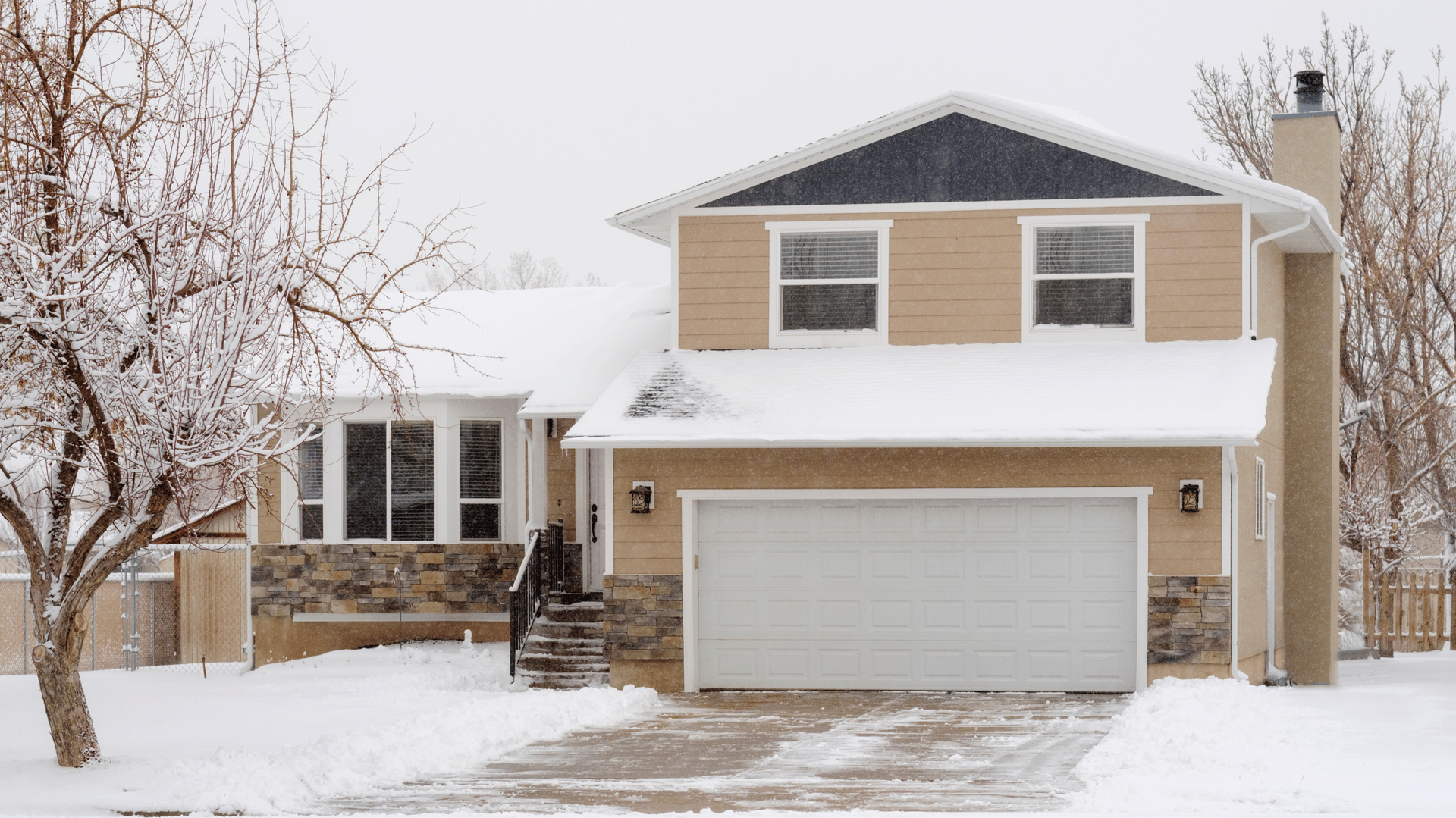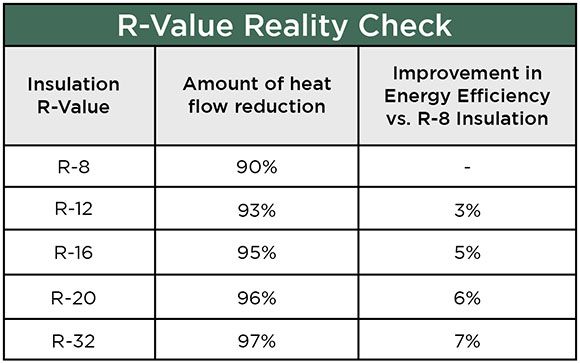What You Need to Know About Garage Door Insulation R Value
It’s starting to get colder outside these days. Are you getting ready to winterize your home to make it more energy-efficient? Maybe you have already secured your windows and doors, but have you considered the garage door? It is, after all, the largest opening to your home. Understanding the garage door R value for insulation is important to your winterization efforts. Garage door insulation will make your home more energy-efficient and cozy during the cold winter days that will soon be upon us.
What is R Value?
R value is a term used to measure the thermal resistance of a material to heat flow. The garage door R value indicates the effectiveness of the insulation in preventing heat transfer. The higher the R value, the better the insulation properties of the garage door. Understanding the R value of garage doors will assist you in making informed decisions for garage door installations that will serve your needs best. Let’s open the topic of garage door R values and discover how higher ratings improve energy efficiency.
Does R Value Matter in Garage Doors?
Yes, of course, the R value of an insulated garage door matters in determining its energy efficiency. Opting for a garage door with a high R value is particularly crucial if your garage is attached to your home. Consider how you plan to use the garage space, as it will also impact your decision. For instance, if the space is used as a workshop or a workout area, the R value of the garage door becomes more important. If there is a room situated above the garage, the garage door R value will also be an important consideration. The insulated garage door R value will not be as critical for detached garages that are not heated; in that situation, a non-insulated or lightly insulated garage door may suffice.
As a side note: Apart from their energy efficiency benefits, insulated garage doors are more visually appealing and are quieter to operate compared to uninsulated doors.

Garage Door Energy Efficiency is Measured by Its R-value Rating
The energy efficiency of a garage door is crucial, and its R value rating measures it. The R value plays a significant role in reducing energy consumption and, consequently, saving on your energy bills.
Different types of insulation materials will impact the garage door R value. Polystyrene, similar to Styrofoam, is less effective as insulation than polyurethane. Polyurethane, being highly versatile and efficient, expands to fill any space and is even utilized in narrower entry doors.
While garage door R value is essential in winterizing your home, it is not the sole factor to consider. Addressing gaps and leaks in the weather stripping and overall construction of the garage door are equally important. Remember, an energy-efficient garage door with a superior R value will not be fully effective if there are leaks or gaps where warm air can escape. To maximize energy efficiency, make sure there are no gaps in the weather stripping or construction.
What is a Good R Rating for Garage Door Insulation?
Garage door insulation with an energy-efficient R-value determines the thermal resistance of the insulation material used in garage doors. To achieve the best energy efficiency, it is recommended to have a garage door with an insulated R value of 10 or higher. An insulated garage door R value of 16 is considered to be better than one with an R-12 rating.
Garage Door R Value Chart
Below is a garage door R value comparison chart. Find the rows that best describe your door's style (collection and construction). Then compare them with the insulation type (polyurethane or polystyrene). The U-factor column indicates the industry standard performance for your specific door style, construction, and insulation type.
The U-factor measures the rate of heat loss through a material and is determined by testing the entire door assembly. In this column, a lower value indicates optimal effectiveness. However, when considering the R-value, you should aim for a higher value. The R-value indicates the insulation effectiveness, with a higher value offering better insulation properties.
Image Source: garagedoorlearningcenter.com
Recommended R Value for Garage Door
The recommended garage door R value depends on the type of door you are considering. It’s best to consult with an experienced garage door installer for a professional recommendation. In general, residential garage doors typically have lower R values, ranging from 6 to 18, as they are not typically exposed to extreme temperature differentials for extended periods. On the other hand, commercial garage doors may require higher R values ranging from 12 to 25 for optimal energy efficiency.
Looking for More Energy Saving Tips? Visit The Door Systems, Inc Blog!
At Door Systems, Inc., our focus is to help our customers save money by conserving energy in various ways. Explore our blog to discover valuable insights on optimizing your home's energy usage and guidance on choosing energy-saving products. Our blogs provide a wealth of professional advice and information on how you can reduce your energy consumption and save money, while also contributing to a greener future.







